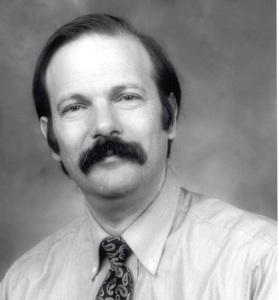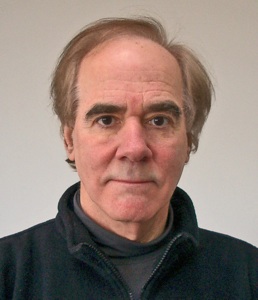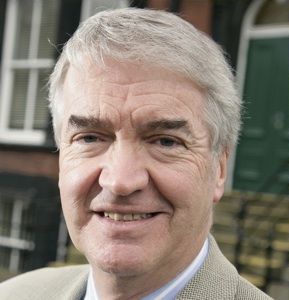9th International Conference on Quantitative Evaluation of SysTems (QEST) 2012
The Keynote Speakers
Moshe Vardi (IEEE Computer Society 2011 Harry H. Goode Award Winner, Rice University)

Compositional Temporal Synthesis
Synthesis is the automated construction of a system from its specification. In standard temporal-synthesis algorithms, it is assumed the system is constructed from scratch rather than composed from reusable components. This, of course, rarely happens in real life. In real life, almost every non-trivial system, either in hardware or in software, relies heavily on using libraries of reusable components. Furthermore, other contexts, such as web-service orchestration and choreography, can also be modeled as synthesis of a system from a library of components. In this talk we describe and study the problem of compositional temporal synthesis, in which we synthesize systems from libraries of reusable components. We define two notions of composition: data-flow composition, which we show is undecidable, and control-flow composition, which we show is decidable. We then explore a variation of control-flow compositional synthesis, in which we construct reliable systems from libraries of unreliable components. Joint work with Yoad Lustig and Sumit Nain.Biography
Moshe Y. Vardi is the George Distinguish Service Professor in Computational Engineering and Director of the Ken Kennedy Institute for Information Technology Institute at Rice University. He is the co-recipient of three IBM Outstanding Innovation Awards, the ACM SIGACT Goedel Prize, the ACM Kanellakis Award, the ACM SIGMOD Codd Award, the Blaise Pascal Medal, and the IEEE Computer Society Goode Award. He is the author and co-author of over 400 papers, as well as two books: Reasoning about Knowledge and Finite Model Theory and Its Applications. He is a Fellow of the Association for Computing Machinery, the American Association for Artificial Intelligence, the American Association for the Advancement of Science, and the Institute for Electrical and Electronic Engineers. He is a member of the US National Academy of Engineering, the American Academy of Arts and Science, the European Academy of Science, and Academia Europea. He holds honorary doctorates from the Saarland University in Germany and Orleans University in France. He is the Editor-in-Chief of the Communications of the ACM.
Jeff P. Buzen (ACM SIGMETRICS 2010 Achievement Award winner)

Empirical Randomness: Implications for Applied Stochastic Modeling
What does it mean for a sequence of numbers to be random? The traditional answer, based on the notion of sampling from underlying random variables, is not always a good fit when the numbers represent observations of real systems operating over intervals of time. This talk develops an alternative approach to characterizing uncertainty that enables analysts to determine if a sequence of observations is "random enough" to permit certain conclusions to be drawn, even though the observations may not be entirely random in the traditional sense. The alternative approach, which is based on the idea of loosely constrained sequences of observations, has direct implications for cases where real world systems exhibit irregular patterns of behavior, and where the detailed properties of these patterns are not of material interest.Biography
Jeff Buzen's research focuses on the practical application of stochastic models - primarily to the analysis of computer performance. He pioneered the use of queuing network models for such purposes through his development of the central server model, the convolution algorithm (Buzen's algorithm), and operational analysis. He is also an entrepreneur who co-founded a software company (BGS Systems) to commercialize and extend the mathematical modeling technology he developed for his PhD dissertation at Harvard. At the start of his career, he held an appointment as a Lecturer on Computer Science at Harvard where his PhD students included Ethernet inventor Bob Metcalfe and his undergraduate students included Microsoft co-founder Bill Gates. Dr. Buzen is a member of the National Academy of Engineering (USA) and a recipient of several honors including the ACM Sigmetrics Achievement Award (2010).
Michael Maher (Leeds University)

Stochastic Modelling of Sport
Sport provides a rich set of opportunities for the application of stochastic modelling. The discrete nature of some sports (tennis, for example) lends itself to analysis through Markov chains to model how the state of the game changes over time, enabling the estimation of the probabilities of various outcomes. In others there are clear "risk and reward" types of decision to be made by the player. There are opportunities to apply game theory, optimisation techniques, dynamic programming, Markov models, and statistical methods to describe and analyse games and sports, ranging from football, tennis and golf to darts and snooker. A good player is generally one who does not merely have good technical skills but is able to make excellent decisions under pressure. The talk will give an overview of the range of possible applications and problems, and then focus on a number of examples including, amongst others, the statistical modelling of football scores and a Markov model of matchplay golf (eg the Ryder Cup), and will demonstrate how such models can be used not merely for entertainment but to estimate the odds of various outcomes as a decision-support tool for in-play betting.Biography
Since graduating from St John's College, Cambridge with a first degree in Engineering (1966) and a PhD in Operations Research (1970), Mike has worked in the general area of the mathematical and statistical modelling of transport problems, specialising in stochastic modelling. As well as working in academia at the Institute for Transport Studies (ITS) at Leeds University, the Department of Probability & Statistics at Sheffield University, and the Transport Research Institute at Napier University Edinburgh, he has also worked for a time in the scientific civil service, at the Transport Research Laboratory in Berkshire. He retired from full-time work in 2007 and returned in a part-time capacity to ITS Leeds as Research Professor in the Mathematical Analysis of Transport Systems. His principal areas of research have been in route choice modelling in complex road networks, the estimation of the effectiveness of remedial traffic safety measures (eg speed cameras), and the use of Monte Carlo traffic simulation models for optimisation. However, he also makes occasional excursions into the mathematical modelling of sports, thereby combining two of his favourite interests! Indeed, he is the author of a much-cited paper on the modelling of football scores. He is a Fellow of the Institute of Mathematics and its Applications, a Chartered Statistician, and member of the editorial advisory board for the leading international journal Transportation Research B. He lives in North Berwick in Scotland and, aside from research, his interests include playing tennis and golf, reading, and doing the Guardian crossword.News
Sep 2012
Pictures from the conference
Updated programme with session chairs
Jul 2012
Updated venue instructions
Links to Accommodation
Jun 2012
Registration is open.
The programme has been published.
Feb 2012
Deadlines for submissions have been extended by a week.
Feb 2012
Submissions are now accepted
Jan 2012
Details of the keynote talks
Nov 2011
Download the poster
Oct 2011
Keynote speakers confirmed
Aug 2011
Web site online
Pictures from the conference
Updated programme with session chairs
Jul 2012
Updated venue instructions
Links to Accommodation
Jun 2012
Registration is open.
The programme has been published.
Feb 2012
Deadlines for submissions have been extended by a week.
Feb 2012
Submissions are now accepted
Jan 2012
Details of the keynote talks
Nov 2011
Download the poster
Oct 2011
Keynote speakers confirmed
Aug 2011
Web site online
Organized by
Contact
In cooperation



